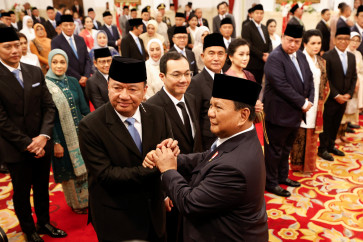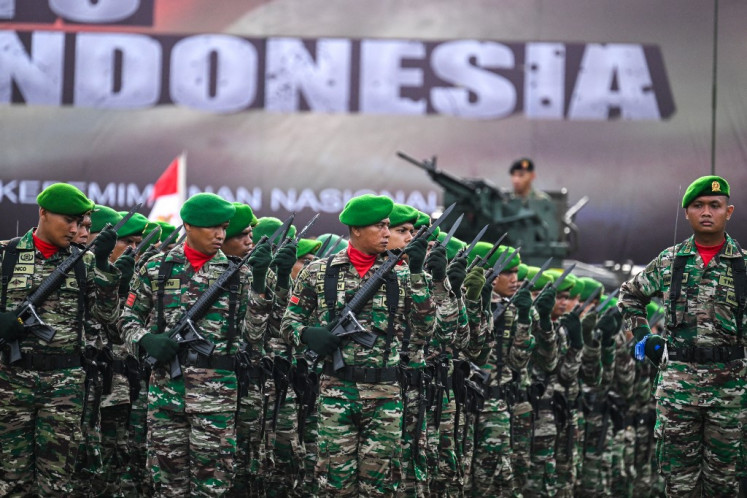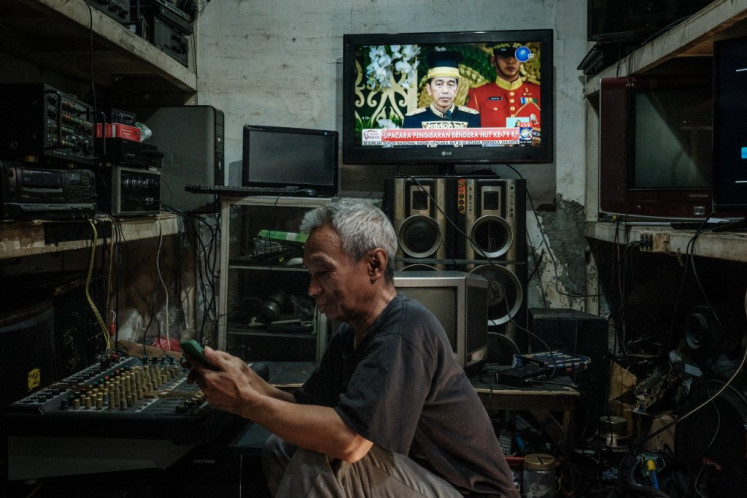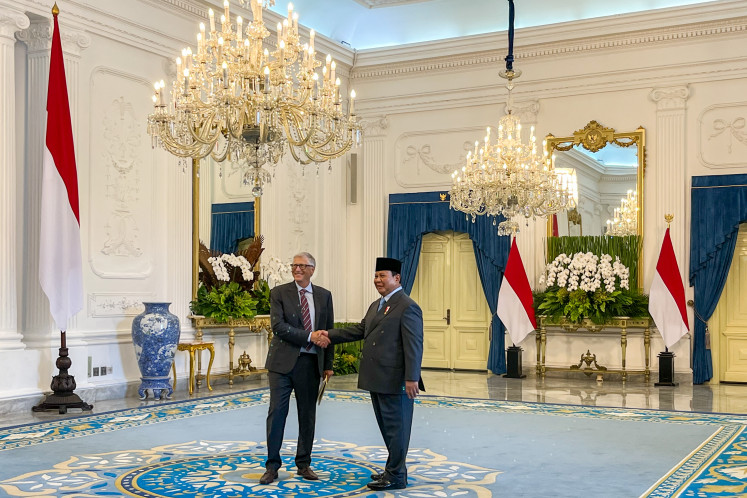TPP will threaten Indonesia's state-owned enterprises: Expert
Experts warned the government on Friday to calculate the advantages and disadvantages of joining the Trans-Pacific Partnership (TPP) as the deal has gone far beyond a typical trade agreement
Change text size
Gift Premium Articles
to Anyone

Experts warned the government on Friday to calculate the advantages and disadvantages of joining the Trans-Pacific Partnership (TPP) as the deal has gone far beyond a typical trade agreement.
Economy expert from Paramida University Firmanzah suggested that the government form a cross-ministerial taskforce to study the free-trade agreement between the US and 11 other countries, which is not only focused on reducing tariffs but also on highlighting issues in government procurement, competition policy, intellectual property, labor laws and environment policy.
"It's not merely a trade agreement, but a uniformity across all aspects of the industry. If we insist on joining, many regulations will need to be revised," said Firmanzah at a discussion held by the Institute for Development of Economics and Finance (Indef) in Jakarta on Friday. He considers Indonesia not ready to join the TPP.
The TPP, he said, stipulates no special treatment for state-owned enterprises (SOEs). If Indonesia joins, SOEs will share an equal position to non-SOEs, whether local or foreign.
Being a member of the TTP would require Indonesia to reform the SOEs sector to allow better competition in procurement. "For example, by joining the TPP, infrastructure projects could not be handed to SOEs. It would have to be via procurement procedure," said Firmanzah.
President Joko 'Jokowi' Widodo expressed Indonesia's intention to join the TPP while delivering a speech before representatives from a number of American companies in the US last month.
According to Firmanzah, it would be counterproductive for Jokowi's development agenda 'Nawa Cita' (), which involved achieving economic independence by developing strategic sectors in the domestic economy.
Furthermore, Firmanzah stated, Indonesia was different from Malaysia, which had already joined the TPP together with the US, Australia, Brunei, Canada, Chile, Japan, Mexico, New Zealand, Peru, Singapore and Vietnam.
According to Firmanzah, 'Malaysia produces global standard products and its companies are global investors. "They also want a global-based production industry to supply TPP member countries' markets and to build more structured cooperation with the US, Canada, Mexico and Peru," he said, adding that the 793 million people in TPP member countries was a greater market for Malaysia, which have only 29.5 million market in their home.
Firmanzah believed Indonesia should focus on on-going regional agreements that were more friendly than the TPP, such as the Regional Cooperation Economic Partnership (RCEP) ' a partnership between ASEAN and Australia, China, India, Japan, South Korea and New Zealand ' and a Comprehensive Economic Partnership Agreement (CEPA) with South Korea, aimed at increasing two-way trade to US$100 billion annually by 2020.
Indef researcher Bhima Yudhistira Adhinegara added that in addition to equal treatment for SOEs and non-SOEs, the TPP also regulated the protection of intellectual property rights, internet access liberalization and investor dispute settlement. "States may be sued by companies and investors in international arbitration. This means a loss of sovereignty over trade law for TPP members," he explained. (iik)









